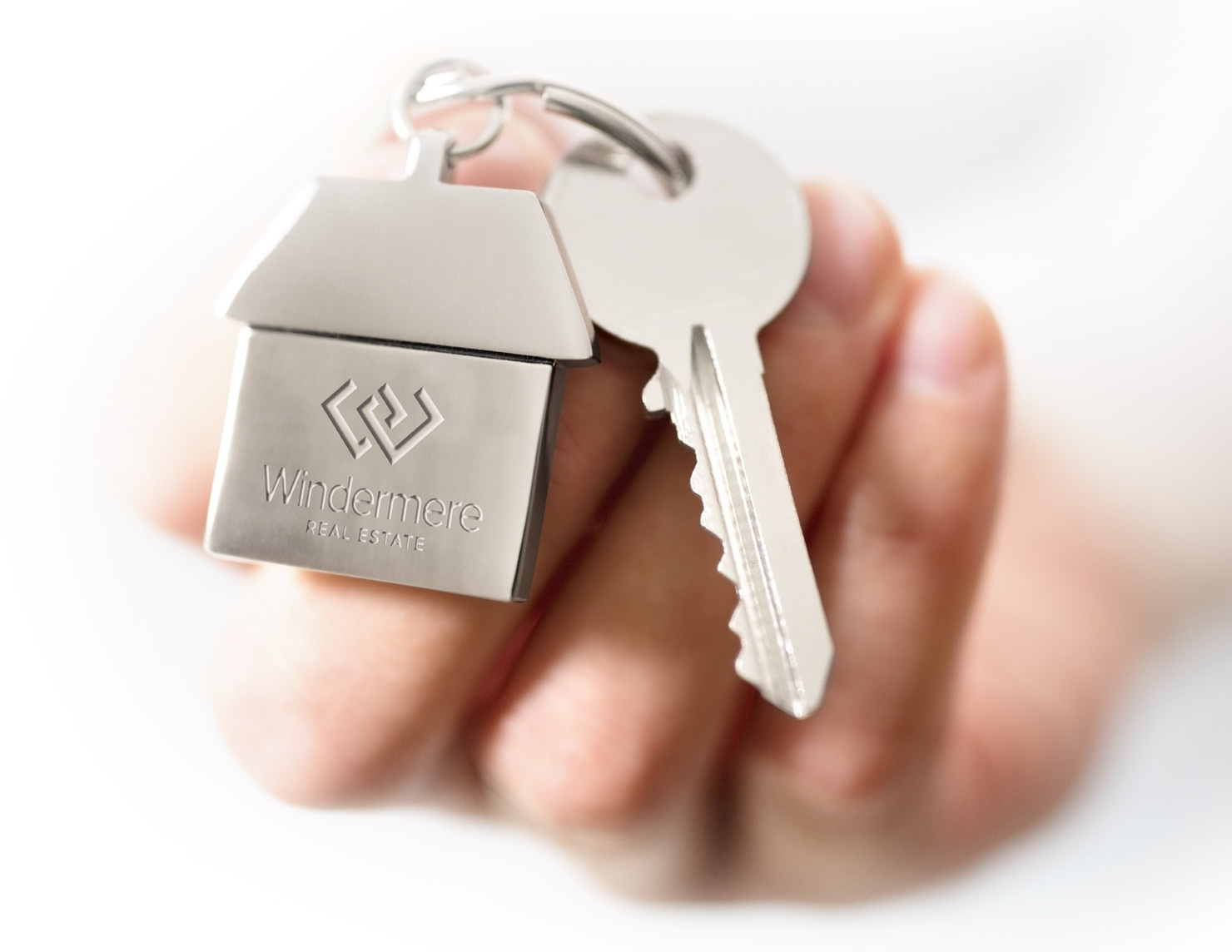GUIDE TO SELLING A HOME
USING A WINDERMERE AGENT TO SELL YOUR HOME
Your home may be your single biggest investment and one of the largest financial transactions you’ll ever make. So when you sell, you want to get the best price and the most favorable terms, in the shortest amount of time. There are many marketing options, legalities, and details that go into the sale. The role of your agent is to represent every aspect of the transaction, from the time you set the price to the final closing.

AS YOUR WINDERMERE AGENT
❱ I know the market and will help you set the right price.
❱ I also know what buyers are looking for and the financial incentives that will encourage them to buy.
❱ I am a member of the Multiple Listing Service (MLS), which enables me to provide detailed information about your home to the thousands of other agents assisting buyers.
❱ In addition to the MLS, I interact with other agents on a daily basis. We trade information about new properties and match eager buyers with the right homes.
❱ I have access to several advertising opportunities— both in print and online—that will raise interest in your home.
❱ I will utilize the tools available to me on Windermere.com in order to attract the maximum number of buyers to your home.
❱ Windermere’s global referral system provides me access to the large number of people who relocate each year, increasing the pool of qualified buyers for your home.
❱ I can quickly separate the qualified buyers from the rest of the pack. This saves you time, because your home is only being shown to serious buyers.
PREPARATION – REPAIR AND CLEANING CHECKLIST
EXTERIOR:
- Remove peeling and chipped paint; replace with a fresh coat.
- Fix loose trim and fencing.
- Clear gutters and downspouts.
- Make sure there is good exterior lighting and all walkway lights and front-door lanterns work.
- Clean and repair the roof as needed.
- Clear garage of clutter and tidy shelves.
- Inspect chimney for cracks and damage.
YARD:
- Mow and trim grass; re-seed and fertilize where necessary.
- Prune all overgrown trees and shrubs.
- Weed flower beds. Remove or replace dead or diseased plants, shrubs and trees.
- Clean grease and oil stains from driveway.
DECKS/PATIOS:
- Paint or stain worn areas on wood decks.
- Remove grass growing in concrete cracks; sweep off debris from shrubs and trees.
- Clean all deck rails and make sure they’re secure; replace missing slats or posts.
- Clean outdoor furniture.
FRONT DOOR:
- Polish or replace the door hardware so it shines.
- Add a fresh coat of paint to get rid of nicks.
- Clean the glass on the storm door; make certain the screen is secure.
- Make sure the doorbell operates properly and there are no squeaks when the door opens and closes.
WINDOWS:
- Clean all windows inside and out.
- If needed, add a fresh coat of paint to the window trims and sills.
- Make sure all windows open and close easily.
- Replace cracked windowpanes and those with broken seals.
- Make sure window screens are clean and secure; replace any screens with holes or tears.
ENTRY:
- Clean entryway floors and area rugs.
- Downsize clutter in the entry and entry closet to give the appearance of spaciousness.
- Double-check entry lighting to make sure it works.
THROUGHOUT:
- Clean all floors, carpets, walls and trim.
- Replace burned-out light bulbs.
- Empty trash.
- Remove family photos, valuables, and prescription drugs.
KITCHEN:
- Make sure countertops, grout, and sinks are clean and stain-free. Replace grout as needed.
- Fix dripping faucets.
- Organize pantry and cupboards so they appear clean, neat and spacious.
- Make sure the refrigerator and freezer are defrosted and free of odors.
- Clean the oven and cook-top thoroughly.
- Set the table.
SHOWING YOUR HOME
Once your home is ready to show, as your Windermere agent, I will begin marketing it to potential buyers and other sales associates. If possible, leave the home when buyers are present so they feel comfortable asking their agent candid questions. Other helpful tips include:
❱ Remove pets. Take them with you or keep them penned in the yard or garage.
❱ Open shades and curtains to let in light.
❱ Turn on enough lights so the home is well-lit.
❱ Remove clutter from tables and bookshelves. Neatness makes rooms seem larger.
❱ Put away items in the yard such as garden tools, bicycles and toys.
❱ Turn on gas fireplaces to create a cozy atmosphere.
❱ Grind up part of a lemon in the disposal to add a fresh smell to the kitchen.
❱ Keep radios and TVs off, or on low volume.
❱ Keep money and other valuables, as well as prescription drugs, locked up.

PURCHASE AND SALE AGREEMENT
Once you’ve found a buyer for your home, I will work with you through the purchase and sale agreement. This is the contract in which you and the buyer outline the details of your property transfer. The purchase and sale agreement usually consists of the following:
❱ Earnest money receipt
❱ Financing addendum
❱ Inspection addendum
❱ Conditions/disclosure addendum
❱ Contingency addendum, when appropriate
❱ Addendum outlining special conditions
❱ Lead-based paint notification, when appropriate
In selected areas, the following forms will also be part of your agreement:
❱ Agency disclosure form
❱ Property disclosure form

HOME INSPECTIONS
Once a buyer has decided to make an offer on your home, it will usually be contingent upon a professional inspection of the entire property— including improvements. The home inspector looks beyond the cosmetics to make sure that the home’s general systems operate properly. The inspector will also look for large repairs that are needed and report on the condition of the home.

The standard home inspector’s report will review the conditions of the home’s heating and cooling systems; interior plumbing and electrical systems; the roof, attic and visible insulation; walls, ceilings, floors, windows and doors; foundation, basement and visible structure. The inspector will also look for cracks in cement walls, water stains that indicate leakage, and any indication of wood rot.
A home inspection also points out the positive aspects of a home, as well as the maintenance that will be necessary to keep it in good shape.
As the seller, you can also elect to hire an inspector to evaluate your home prior to putting it on the market. Many times an inspector can point out major or minor issues with your home that you may be unaware of and that may affect its value.
As your Windermere agent, I’m familiar with home inspection services and can provide you with a list of names from which to choose. Another good way to find a home inspector is to ask a friend, or perhaps a business acquaintance, who has had a home inspection and can recommend a home inspector they were satisfied with.
Remember, no home is perfect. If major problems are found, I will help you negotiate through the process.
SETTLEMENT AND CLOSING
During the negotiation stage of the transaction, a mutually agreed-upon date for closing is determined. “Closing” is when you and the buyer sign all the paperwork and pay your share of the settlement fees, and the documents are recorded. Settlement obligations vary widely due to specific contract language, local laws and customs. Prior to closing, the closing agent (usually an escrow or title company or attorney) will complete a detailed settlement statement for both buyer and seller.
As your Windermere agent, I can help you understand which of the following typical settlement fees apply to you.
THE SELLER PAYS:
❱ Brokerage commission (the sum or percentage of the sale price previously agreed upon by the seller and real estate agent)
❱ One-half of escrow or legal fees paid to the attorney or escrow company for preparing the closing (In California, the party paying escrow fees varies from county to county)
❱ Document preparation fees, if applicable
❱ Recording and notary fees, if applicable
❱ Title search and title insurance (paid by either the seller or the buyer)
❱ Local transfer taxes, if applicable
❱ State taxes, if any
❱ Repairs or inspections, if any, seller has agreed to pay for

THE SELLER RECEIVES:
❱ Utility deposits held by gas, electric, cable, telephone and other companies
❱ Prorated portion of pre-paid property taxes
❱ Prorated mortgage interest from payments made during the current month
❱ Fuel rebate for oil or propane remaining in storage tank
❱ Net proceeds after seller’s share of expenses is paid